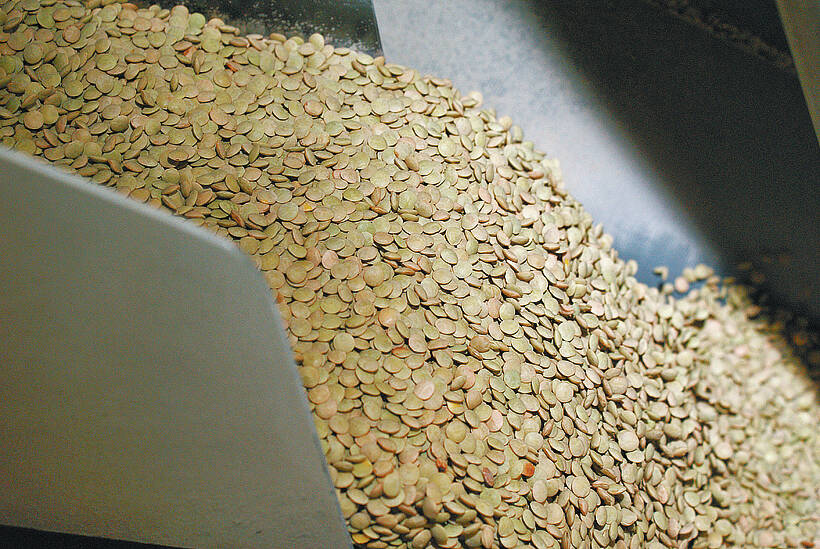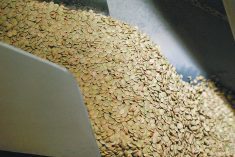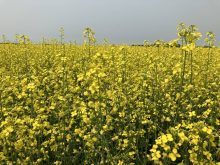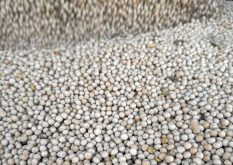Where the economists only see a half-empty glass, farmers who are promoting ethanol development see a half-full glass that could be filled to overflowing.
“I think it’s just good for the farm economy,” says Bill Morningstar of Goodlands, Man.
“I think any time you use a bushel of wheat rather than put it in a boxcar and export it through the West Coast, you’re putting more money into rural areas.”
For decades many farmers have looked to ethanol production as a feasible way to add value to prairie wheat. They think producing ethanol would create new demand for feedgrain, which would raise its price, provide high-protein feed for livestock producers and create jobs and investment in rural areas.
Read Also

Green lentil market oversupplied
Farmers in Western Canada can expect price pressure on their new crop of green lentils, as the available supplies among the world’s major lentil-growing nations increase significantly.
Recently, governments in Saskatchewan and Manitoba have thrown their support behind farmer efforts to set up ethanol plants. In December, the Manitoba government released a report in which rural development experts called for the creation of a network of small ethanol plants that could be attached to feedlots.
But some economists have not backed the call for more ethanol development. Daryl Kraft of the University of Manitoba and Richard Gray of the University of Saskatchewan, two prominent prairie agricultural economists, have said that a feedgrain-consuming ethanol industry would probably compete for supplies with the livestock industry, driving up feedgrain prices.
Some parts of the Prairies, such as southeastern Manitoba, are often forced to import feedgrain because of shortages.
While higher prices might temporarily please grain growers, the economists say the gains wouldn’t be permanent if the livestock industry expansion was slowed or reversed.
Then there would be a smaller livestock industry and an ethanol industry, which would not be a net gain.
Fusarium is one factor limiting feedgrain production in Manitoba and eastern Saskatchewan. Proponents of ethanol production believe fusarium-resistant wheat varieties will soon be developed and that will allow places like Manitoba to increase feedgrain production. They believe creating an ethanol industry now will increase barley production wherever there are ethanol plants.
“People would definitely grow more barley if there was a local market,” said farmer Jim Boxall of Tisdale, Sask.
“It would encourage people to change crops. Producers will grow whatever gives them the best return and the lowest risk.”
Economists and farmers appear to be on opposite sides of the chicken and egg question. While the economists see risks in creating an ethanol industry before there is sufficient feedgrain supply to support it, farmers think feedgrain won’t necessarily be grown until there is an industry to demand it.
“If we sit on our hands and do nothing, pretty soon we’ll be nowhere,” Boxall said.
The Manitoba government disagrees with Kraft’s skeptical view.
“I just don’t think a whole lot of farmers and local businesses would get together and spend a chunk of their own money on something that they thought was a bad idea,” said provincial industry minister Tim Sale.
“The farm community does not appear to support Mr. Kraft’s views.”
Sale said his government’s economic analysis shows that new, fusarium-resistant wheat varieties would produce enough for both livestock feeders and ethanol production. Manitoba used to produce much more wheat before the late 1990s, which could happen again.
“If there is a market for feed-quality grain, especially ones that are higher yielding, have higher starch, lower protein and are more fusarium resistant, I don’t think there’d be any trouble at all getting farmers to grow them,” Sale said.
“There’s lots of land and historically, before the Crow Benefit ended, we produced a surplus of feed wheat.”















